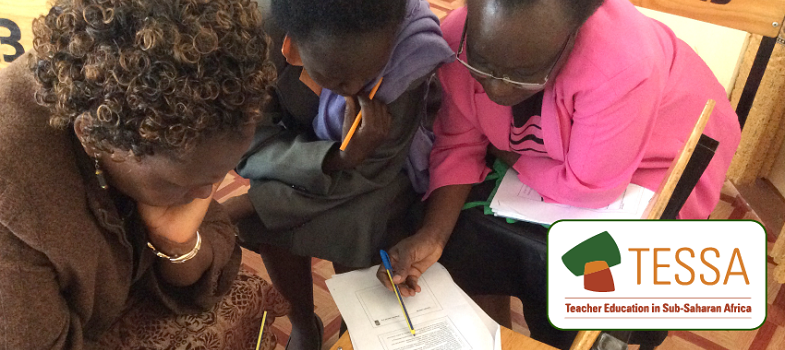1. Informal learning
Children do not only learn in the classroom; they also learn while they are playing. They learn from one another, by watching what others do. They learn by talking, singing, chanting and interacting. You can use play to make your classroom more effective and close the gap between what happens in the classroom and outside.
In Activity 1, your pupils act as researchers, going out into the playground (or beyond) to record what they think children are learning there. When they come back into the classroom, they will talk about what they found out: you will be able to listen to their talk and see what you think they have learned.
Case Study 1: A six-year-old learns and teaches English
Six-year-old Maria is at a school where English is the language of the classroom, although it is not her home language.
Every day for a week, Maria could be seen at break time watching other children play with a skipping rope. She did not join in, but stood close enough to watch and to ‘listen in’ to the rhyme the children were chanting. On the first day of the second week, Maria took her usual position a few feet away from the game, but now she could be seen ‘sounding out’ the words of the rhyme.
She repeated these words over and over, taking delight in saying them louder, softer, and with different stress on parts of a word. She repeated the rhyme several times and then listened again to the other children. She smiled, and said the rhyme again. Finally she looked for a rope and went to her friend, Miguel. She sang the song, line for line to her friend, teaching him the song. She translated the English words so that he could understand what he was learning. Soon Miguel was able to sing the rhyme with Maria.
Activity 1: Investigating natural learning
Before you start this activity, read Resource 2: Research on local games in the curriculum. This explains one researcher’s work and two games that the teachers developed as a result of that research. It would also be helpful to read Key Resource: Researching in the classroom [Tip: hold Ctrl and click a link to open it in a new tab. (Hide tip)] .
- Talk to your pupils about learning. Do they know that they are always learning: at home, at school, when they are playing?
- Ask the class to do an investigation into ‘natural’ learning. Their question is: What learning happens when children play? The pupils should make notes and drawings about the learning they see in the playground and after school, when other children are playing, and when they play themselves.
- In class, ask pupils to share their findings, in groups. Ask each group to demonstrate how to play one game. Record songs or chants they sing during the game, on tape, or in writing.
- Ask each group to discuss what can be learned from these games. Note down their ideas.
What did you learn from this activity about how games can help learning?
Section 3: Using local games for learning



